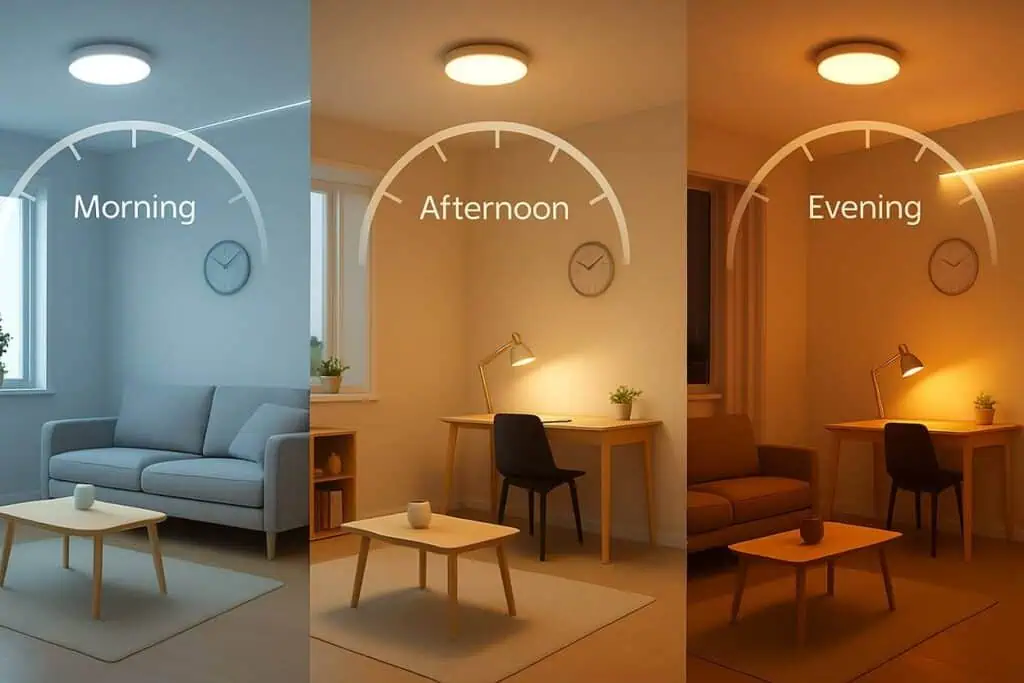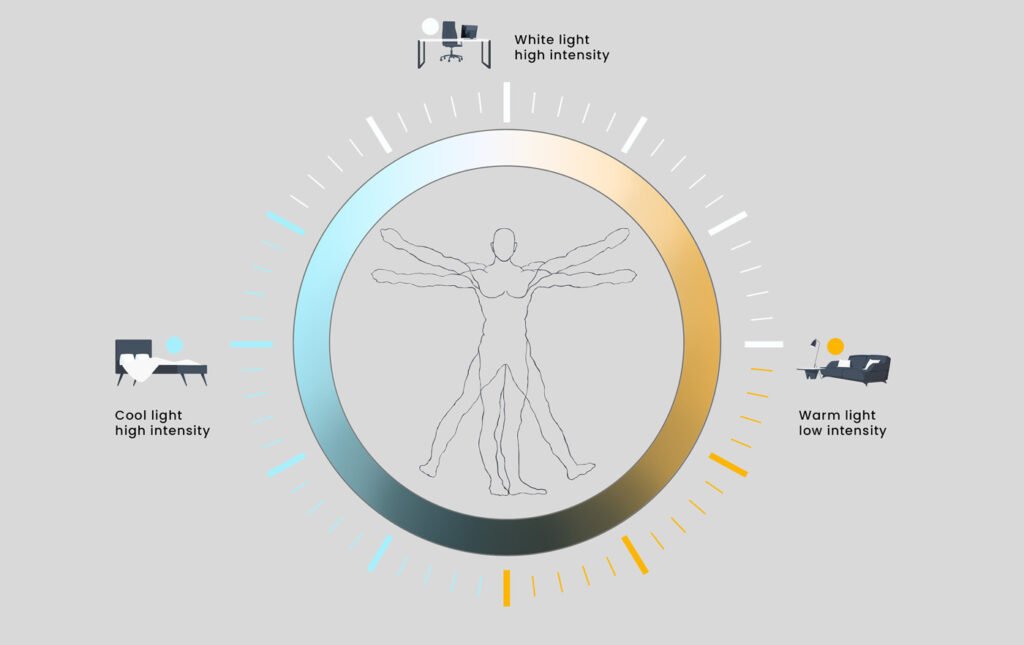Light affects our bodies in many ways. It helps us see, feel awake, and know when to sleep. Our internal clock, called the circadian rhythm, controls these feelings. Smart lighting can help keep this clock working well. In this article, we will learn about how smart lighting affects our circadian rhythm.
What Is Circadian Rhythm?
The circadian rhythm is a natural cycle in our body. It lasts about 24 hours. This cycle tells us when to sleep, wake up, eat, and rest. Light is very important for this cycle. When we see light, our body knows it is time to be awake. When it gets dark, our body feels ready for sleep.
This rhythm helps us stay healthy. It controls many things in our body:
- Sleep and wake times
- Body temperature
- Hormone levels
- Digestion
- Energy levels
What Is Smart Lighting?
Smart lighting means lights that can change by themselves. They use technology to adjust brightness and color. You can control smart lights with a phone or voice. These lights can change depending on the time of day or your needs.
For example, smart lights can:
- Become brighter in the morning
- Turn warmer or dimmer at night
- Change colors to match your mood
How Does Light Affect Circadian Rhythm?
Light tells our brain if it is day or night. Special cells in our eyes send messages to the brain when they see light. The brain then controls hormones that make us feel awake or sleepy.
The hormone melatonin helps us sleep. When it is dark, our body makes more melatonin. When it is light, melatonin drops, and we feel awake.
Not all light is the same. Blue light, like from the sun or screens, is very strong for our circadian rhythm. It tells our brain, “Wake up!”

Credit: www.ledyilighting.com
Impact of Smart Lighting on Circadian Rhythm
Smart lighting can help our body clock work better. It can provide the right light at the right time. This helps us feel awake during the day and sleep better at night.
Morning Light
Smart lights can give bright, blue-rich light in the morning. This helps wake up the brain and body. It makes us feel more alert and ready for the day.
Evening Light
At night, smart lights can switch to warm, dim colors. This kind of light does not stop melatonin. It helps our body get ready for sleep.
Reducing Screen Light Effects
Many people use phones and computers late at night. These screens give blue light that can stop melatonin. Smart lighting can reduce blue light in the evening. This lowers the risk of sleep problems.
Consistent Lighting
Smart lights can keep a steady pattern of light. This helps the body keep a regular sleep-wake cycle. Regular cycles are good for health and mood.
Benefits of Using Smart Lighting for Circadian Health
There are many good things about using smart lighting. Here are some important benefits:
| Benefit | How It Helps |
|---|---|
| Better Sleep | Helps body make melatonin at night |
| Improved Mood | Regular light cycles help brain feel happy |
| More Energy | Morning light boosts alertness and focus |
| Healthier Body Clock | Keeps the circadian rhythm balanced |
| Reduced Eye Strain | Adjusts light brightness for comfort |
Who Can Benefit from Smart Lighting?
Many people can gain from using smart lighting for their circadian rhythm. Some examples include:
- People who work at night or early morning
- Those who use screens a lot
- Older adults with sleep problems
- Students needing better focus
- Anyone wanting better sleep and mood
Simple Tips to Use Smart Lighting Well
You do not need to be an expert. Here are easy ways to use smart lighting:
- Set lights to bright and cool in the morning.
- Use warm, dim lights in the evening.
- Avoid blue light from screens before bedtime.
- Use timers or apps to change light automatically.
- Keep a regular schedule for sleep and light.

Credit: www.sciencedirect.com
Challenges and Considerations
Smart lighting has many benefits. But there are some things to watch out for:
- Cost of buying and installing smart lights
- Need to learn how to use new technology
- Not all smart lights support circadian settings
- Some people may prefer natural light outdoors
Still, these challenges are small compared to the benefits.
Future of Smart Lighting and Circadian Health
Smart lighting is growing in homes and workplaces. More research is done on how light affects health. In the future, smart lighting may become even better at helping our body clocks. It might connect with other health devices to give full care.
For now, smart lighting is a useful tool. It helps people live better by supporting natural rhythms.
Frequently Asked Questions
What Is Smart Lighting In Circadian Rhythm Regulation?
Smart lighting adjusts light color and brightness to support your natural body clock.
How Does Smart Lighting Affect Sleep Quality?
It helps improve sleep by mimicking natural daylight patterns and reducing blue light at night.
Can Smart Lighting Reduce Daytime Fatigue?
Yes, it boosts alertness by providing bright, cool light during the day.
Does Smart Lighting Help With Mood Improvement?
Bright, warm light from smart bulbs can enhance mood and reduce stress.
Conclusion
Light plays a big role in how we feel and sleep. Our circadian rhythm depends on good light signals. Smart lighting can adjust light to fit our natural body clock. It helps us wake up, stay alert, and sleep well.
Using smart lighting with care can improve health and mood. It is a simple way to support the body’s natural cycle. So, think about how your lighting affects your day. Small changes can make a big difference.

